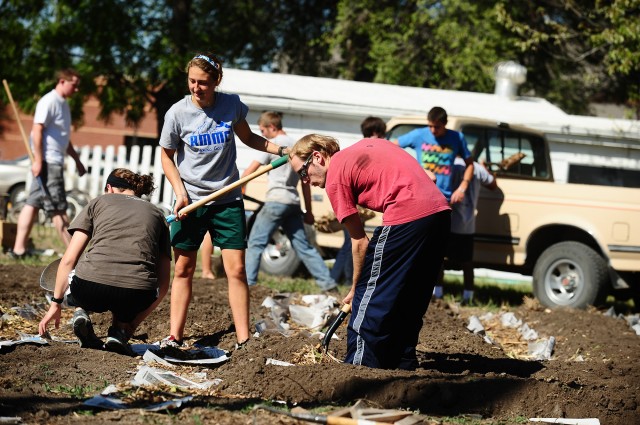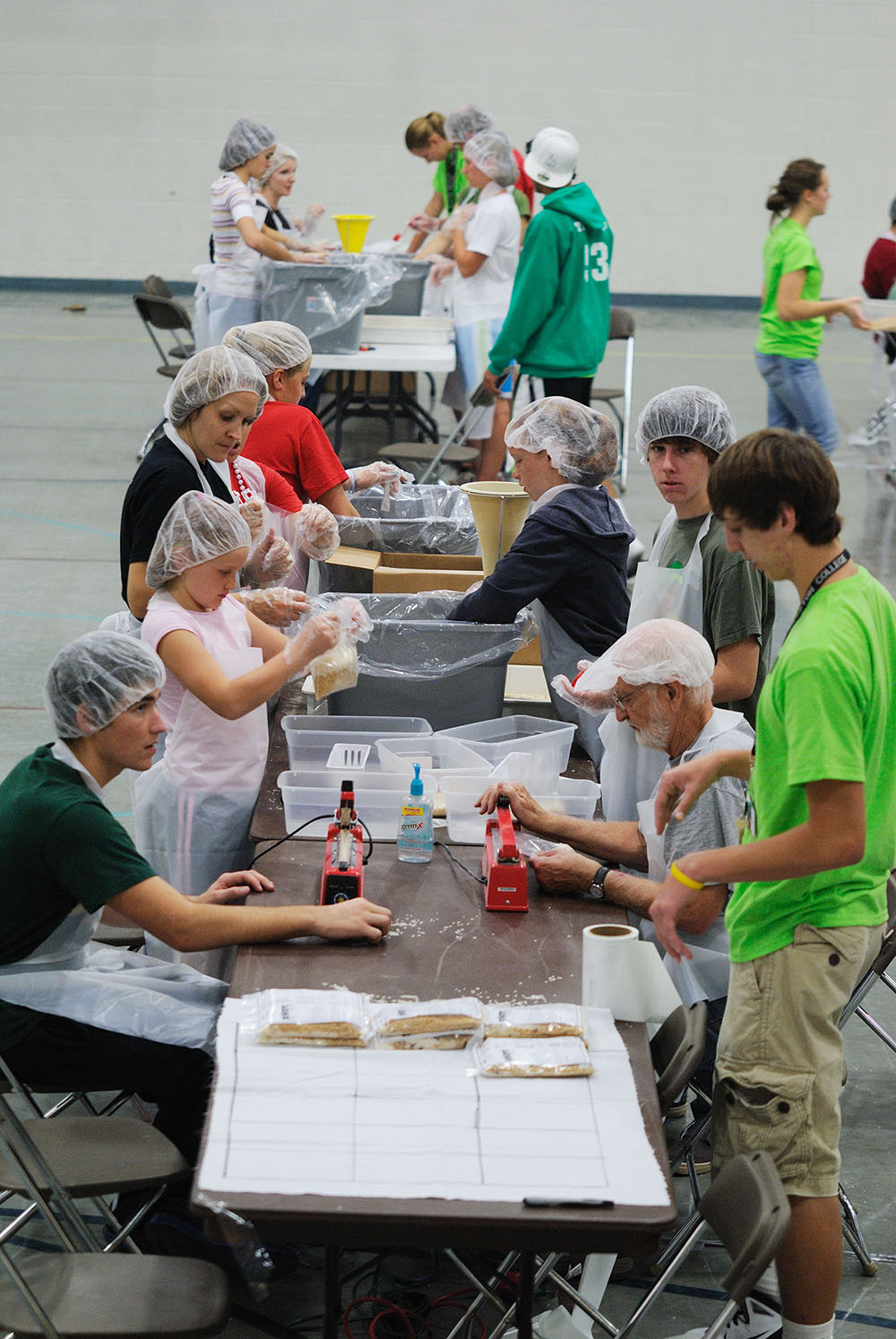Hesston College observed its first No Impact Week Sept. 25 to Oct. 2.
The start of the fall semester kicked off an ongoing theme of sustainability spearheaded by the First Year Experience class and the campus-wide common read “No Impact Man” (Picador, 2010) by Colin Beavan.
The week’s events were an opportunity for the campus community to experiment with sustainable living and care of the environment on campus and in their personal lives.
“No Impact Week inspired me to live more simply and showed me that my contributions toward sustainability have a positive impact,” said freshman Taylor Ermoian of Hays, Kan.
Each day had a different focus, including consumption, trash, transportation, food, energy, water and eco-Sabbath. Activities, discussions and presenters related to each day’s theme.
During Tuesday’s Transportation Expo, students, faculty and staff exhibited and reflected on the form of transportation they use most often and talked about why they make that choice. Bicycles, a moped scooter, a diesel Volkswagen Jetta that runs on biodiesel, a diesel Dodge Ram 2500 and even those who walk were displayed.
Ben Healey, owner of Healey Biodiesel in nearby Sedgwick, Kan., and sales representative Andy Ashbrook were on hand to explain the benefits of biodiesel – an alternative fuel source made from recycled fryer oil and diesel fuel.
“Biodiesel has low emissions and is a relatively clean burning fuel, including 100 percent fewer sulfates, which cause acid rain,” said Ashbrook. “The benefits of producing biodiesel are that we are able to keep the economy local, we are producing half the emissions and it is less expensive than regular fuel. We are taking a waste product and turning it into a viable fuel source.”
Music faculty member Bradley Kauffman’s buys Healey’s biodiesel to run his Volkswagen Jetta. His last fuel purchase cost $3.35 per gallon while diesel was $3.89 per gallon at the pump. Kauffman said he consistently averages about 43 miles per gallon, but can get as much as 50 miles per gallon.
“My family chooses to take this approach to transportation for environmental reasons,” said Kauffman. “The cost ends up being about a wash because the car requires more frequent oil and filter changes, but biodiesel produces far fewer emissions than petrol or diesel.”
Bicycle enthusiasts Kevin Wilder, psychology and youth ministry professor; Luke Mason, Admissions staff; and student John Swartley of Goshen, Ind., offered free bicycle tune ups and maintenance during the evening’s event.
Other events throughout the week included showings of documentaries relating to the day’s theme, preparing the community garden for spring planting and constructing compost bins, local food options in the cafeteria, an upcycling project of turning old t-shirts into reusable grocery bags and knitting yarn, maintenance in the Dyck Arboretum rain garden and chapel and class presentations by Luke Gascho, director of Goshen (Ind.) College’s Merry Lea Environmental Center.

The culminating event for the week was a service day in which the campus community and wider community packaged meals to be sent to the horn of Africa through Numana.
Numana is an international hunger relief organization based in El Dorado, Kan., that facilitates volunteer food-packaging events throughout the country and sends the meals world-wide to areas where famine and hunger are greatest.
“It can be difficult to feel like you are serving the world when you are in college and planted in one spot,” said sophomore Saralyn Mast of Ephrata, Pa. “This was a great opportunity for students to serve those around the world. It was exciting to see people come together with a common service goal.”
Hesston’s event was the first of Numana’s month-long State Wide Packaging Event (SWIPE) at colleges and universities across Kansas. About 470 student, faculty, staff and community volunteers packaged 51,296 meals in five hours.
Each meal, which consists of rice, soy protein, freeze-dried pinto beans and 21 vitamins and minerals, costs 30 cents to prepare and ship and feeds six people. Along with packaging the meals, the college also raised the $15,000 necessary to cover the preparation and shipping costs.


